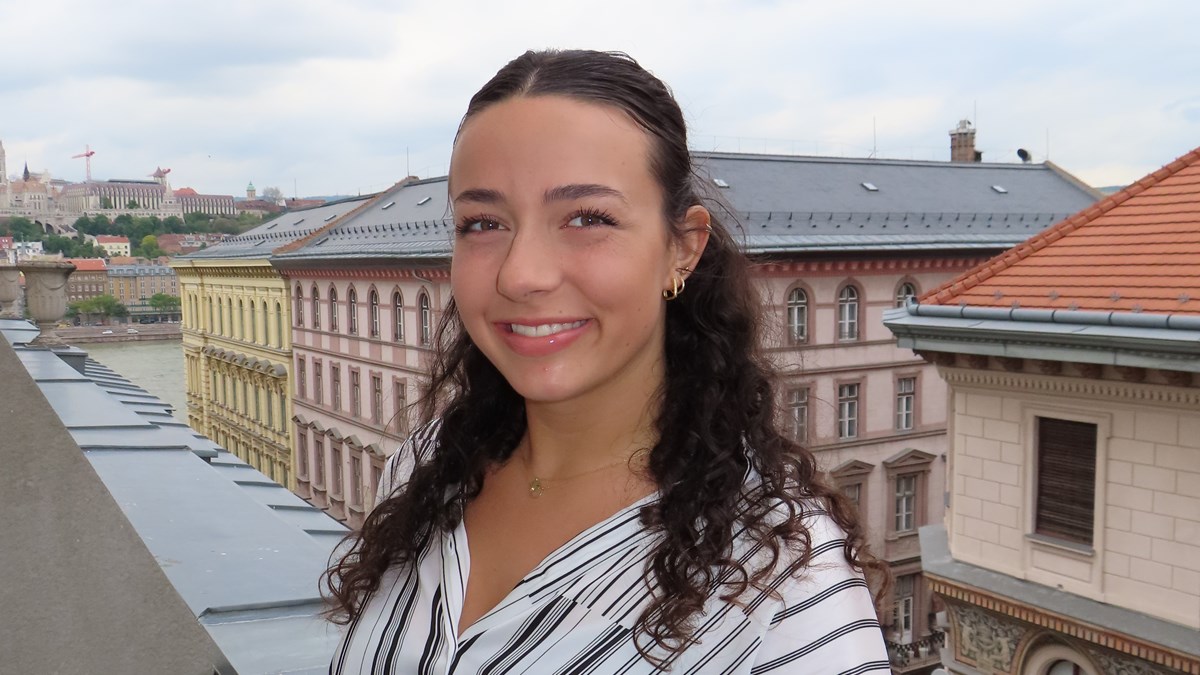Rebekah Avey

“The exercise physiology program has several hands-on opportunities where students learn basic clinical skills, how and when to perform certain exercise tests and how to develop an exercise prescription. My favorite hands-on experience is the gross anatomy lab.”
Why did you choose your current major or program?
I originally pursued a degree in exercise physiology due to my interest in medicine and how the human body works, but I soon took a deep interest in understanding how exercise and other lifestyle factors have such a significant impact on our health.
Why did you choose WVU for your education?
I grew up in a family full of WVU graduates and lifelong fans. I explored other options, but WVU was the only place that had everything I was looking for. There are endless opportunities in every field imaginable and the community is unmatched.
What do you eventually want to do in your career? What’s the end goal? Are there any postgraduate degrees or programs you want to pursue?
After completing my undergraduate education, I plan to attend medical school here at WVU to become a physician.
Why do you feel this career will be rewarding and fits you uniquely?
I have always enjoyed problem solving as well as learning about the human body and medicine. Becoming a physician allows me to combine these two interests to help people of all different kinds in a way that very few others can.
What would you tell a student who’s thinking about applying to your program?
I would recommend joining the exercise physiology program if you have any interest in pursuing a career in healthcare! There is such a wide variety of content and so many different opportunities to discover your interests and prepare you for the future.
Does your program have any hands-on learning or internship opportunities that you’ve particularly enjoyed?
The exercise physiology program has several hands-on opportunities for students including EXPH 388 and 389 where students learn basic clinical skills, how and when to perform certain exercise tests, how to develop an exercise prescription and more. My favorite hands-on experience is the gross anatomy lab where students gain a deeper understanding of anatomy with cadavers generously donated through the Human Gift Registry.
Have you had any faculty that you particularly enjoyed in class or through mentorship, etc.?
I enjoyed Professor Thomas’s classes because it is clear that he is genuinely interested in the education and success of his students. I have learned so much about the process of research from my two years of researching in Dr. Aaron Robart's lab.
Tell us about your research experience at the School of Medicine. What inspired you to join a lab? What has it provided for you and how does that differ from what you thought it would be?
I originally wanted to join a lab to understand how the content I learn about in my classes can be applied to real-life situations for the advancement of healthcare. Over the past two years, I have developed this understanding as well as a great appreciation for the importance of persistence and perseverance as they apply to research and medicine. In addition, I have learned that research does not always progress in a linear direction due to the constant unexpected discoveries and findings that can change the course of the entire project.
Are you active in any clubs or extracurricular activities?
I am a member of Biochemistry Club, Student Dance Association, and the Pre-Med Track Program. I have also participated in ACS Chemistry tutoring and I currently volunteer with Meals on Wheels.
Tell us something unique or interesting about yourself that others may not know. Hobbies, talents, superlatives, etc.
I have danced since the age of 3 so I love being able to participate in the WVU Dance Program’s spring show each year!